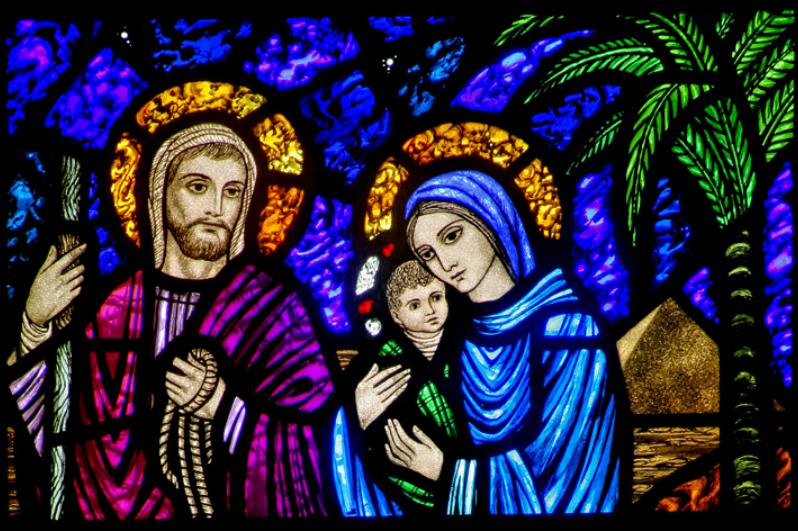Marriage of Mary and Joseph
Q. I have a question about one of your recent columns. (A woman wrote to say that her husband had been refusing for many years to have sexual relations with her, and you suggested that this violates the marriage contract.) If sex is so important to a marriage, would you consider the marriage between the Blessed Virgin Mary and St. Joseph to have been a valid marriage? (Indianapolis)
A. Yes, the marriage of Mary and Joseph was a valid marriage. Even though this marriage was never consummated, it was the spouses' consent that validated the marriage bond, and their decision to maintain Mary's virginity was made mutually.
They gave full consent to their unique call to raise the child Jesus as husband and wife. The Church's understanding is that marriage is ordered by its nature both to the good of the spouses and the procreation and education of offspring. At the time of their marriage, both Mary and Joseph knew of Mary's pregnancy.
The Gospel of Matthew (1:16) explicitly recognizes the validity of this marriage when it calls Joseph "the husband of Mary"; and in the eucharistic prayer of the Mass we say, "Blessed Joseph, her Spouse."
Q. My fiancé and I are facing a dilemma. He is from a Catholic but extremely abusive household with controlling parents. His sister, who has not practiced the faith for nearly a decade and no longer identifies as Catholic, has recently come out as a lesbian and has invited us to her wedding ceremony.
His parents have said many hateful and cruel things about her and have all but threatened to cut off any siblings who attend. My fiancé and I would like to attend at least the reception -- in order to demonstrate that there is more to Catholicism than the cruelty she has received from her parents.
We want to communicate that we don't believe this is a valid marriage but that does not change our love for her. Would that be immoral under Church teaching? (Ellettsville, Indiana)
A. The U.S. Conference of Catholic Bishops has a webpage called "FAQs on the Meaning of Marriage & Sexual Difference," and that webpage responds directly to the question you raise.
It says: "For a Catholic who is invited to a same-sex 'wedding,' it is important to consider what marriage is and what his or her attendance at such an event would mean. Since marriage is the union of a husband and a wife -- that is, as a man and a woman -- attending a same-sex 'wedding' may be considered support for something that is incompatible with this truth.
"Especially when it involves close family or friends, it can be a difficult decision. In such circumstances, it is good to seek the advice of your pastor or spiritual director. It is also good to remember that there are many ways of showing love to a person with same-sex attraction without attending such a ceremony."
So although there is not an absolute canonical prohibition against attendance at such a ceremony, I am sure that most Church leaders would discourage your presence.
It strikes me, though, that you may have reached an acceptable compromise by deciding to show up at the reception but not the wedding -- so long as the couple understands by this that you don't believe theirs is a valid marriage.
- Father Kenneth Doyle is a columnist for Catholic News Service



















